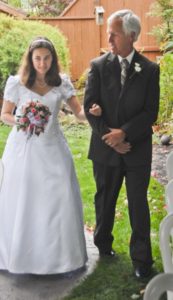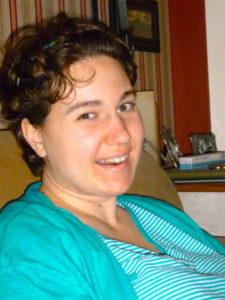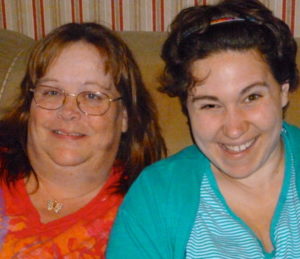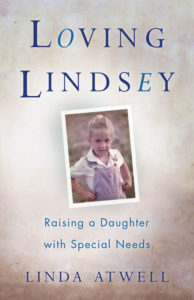
Two fall seasons ago, in our backyard, my husband walked our special girl down a grassy aisle. The bride beamed. So did the groom.
And both families held high hopes for a successful union.
Our “kids” had known each other for years. They’d played on the same Challenger softball team, attended special education classes together, and had been friends off and on since they’d graduated from Silverton High School.
“I thought I’d be married forever,” Lindsey said, averting her eyes and picking at a reddened cuticle. “I don’t believe in getting separated or divorced.”
But marriage is hard. Especially when your spouse gets sick. Really sick. “It was too much responsibility,” Lindsey explained, referring to taking care of an ill husband. “I got the worry gene. So when Nick was in the hospital, I worried all the time.”
Which is totally understandable. We’d all worry. As Nick recuperated, her husband found it too difficult to care for someone else, especially when he needed to concentrate on getting well. Which is also totally understandable.
 “It takes two to make a marriage work,” Lindsey said, telling me what that meant to her. “I thought he’d hold my hair back when I got sick, and that I’d hold his ponytail when he got sick.” Lindsey waved her hands in the air, demonstrating holding Nick’s long, blond locks in her hands. “Marriage needs to be fifty-fifty.”
“It takes two to make a marriage work,” Lindsey said, telling me what that meant to her. “I thought he’d hold my hair back when I got sick, and that I’d hold his ponytail when he got sick.” Lindsey waved her hands in the air, demonstrating holding Nick’s long, blond locks in her hands. “Marriage needs to be fifty-fifty.”
When Lindsey and Nick decided to end their two-year marriage, there was sadness and tears on both parts. “It’s nobody’s fault,” my thirty-four-year-old clarified. “We got married too young. We should’ve waited till we were older and wiser.”
Most thirty-something couples would likely think they’d waited long enough. They’d probably recognize that marriage is a lot of work. But when the couple has developmental delays, relationships can be extra daunting. Lindsey and Nick struggled with everyday issues. Disagreements were handled immaturely—more like ten-year-olds than responsible adults. And even though Lindsey and Nick sought counseling, hoping to improve their communication techniques, ultimately, this special couple didn’t have the abilities to deal with the stress of caring for another person. Especially when times were tough.
Now Lindsey has advice for other couples considering marriage.
She pushed a dark curl off her forehead. Her blue eyes darted right, then left. “Don’t rush into it. Get to know the person first.” She adjusted a rainbow-colored plastic headband, then continued. “Make sure you are marrying the marrying type.” Her face remained intensely serious. “In other words, make sure the person you pick wants to be married too.”
Lindsey said that the last three months (of singleness) have gone by very fast. When she and Nick were married, all of their marital distractions caused Lindsey to miss work. She often felt ill herself. “But I’m more focused now. I don’t miss so many days. And when I’m at State Farm, I concentrate on my job.”

Lindsey told us that she’s taking better care of herself and regularly hangs out with Brenda, her new State Provider. “I like doing my own thing. I think being single is the best way to go because now my life is way too busy for a relationship.”
A lot of people have supported Lindsey and Nick in love, and in health, and in sickness. They have appreciated all that support and are grateful for the outpouring of concern and affection that has come their way.
But Lindsey has made a request. She wants you all to know: “Nick and I will be friends forever, but I’m moving on with my life. And I’m happy.”

My first book will be coming out September 26, 2017. If you are interested in learning more about Loving Lindsey: Raising a Daughter with Special Needs, please click here.

